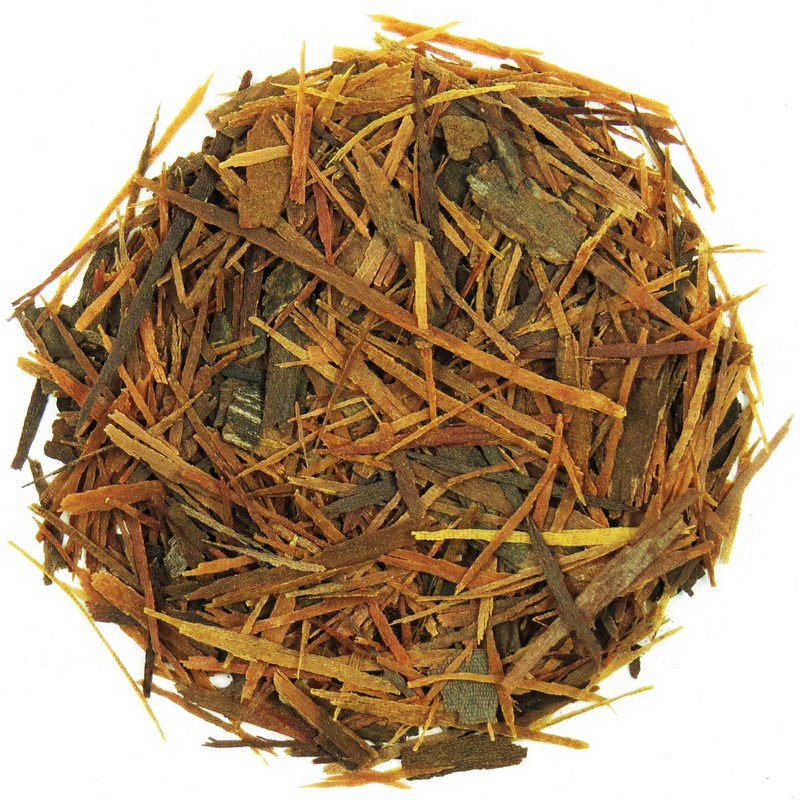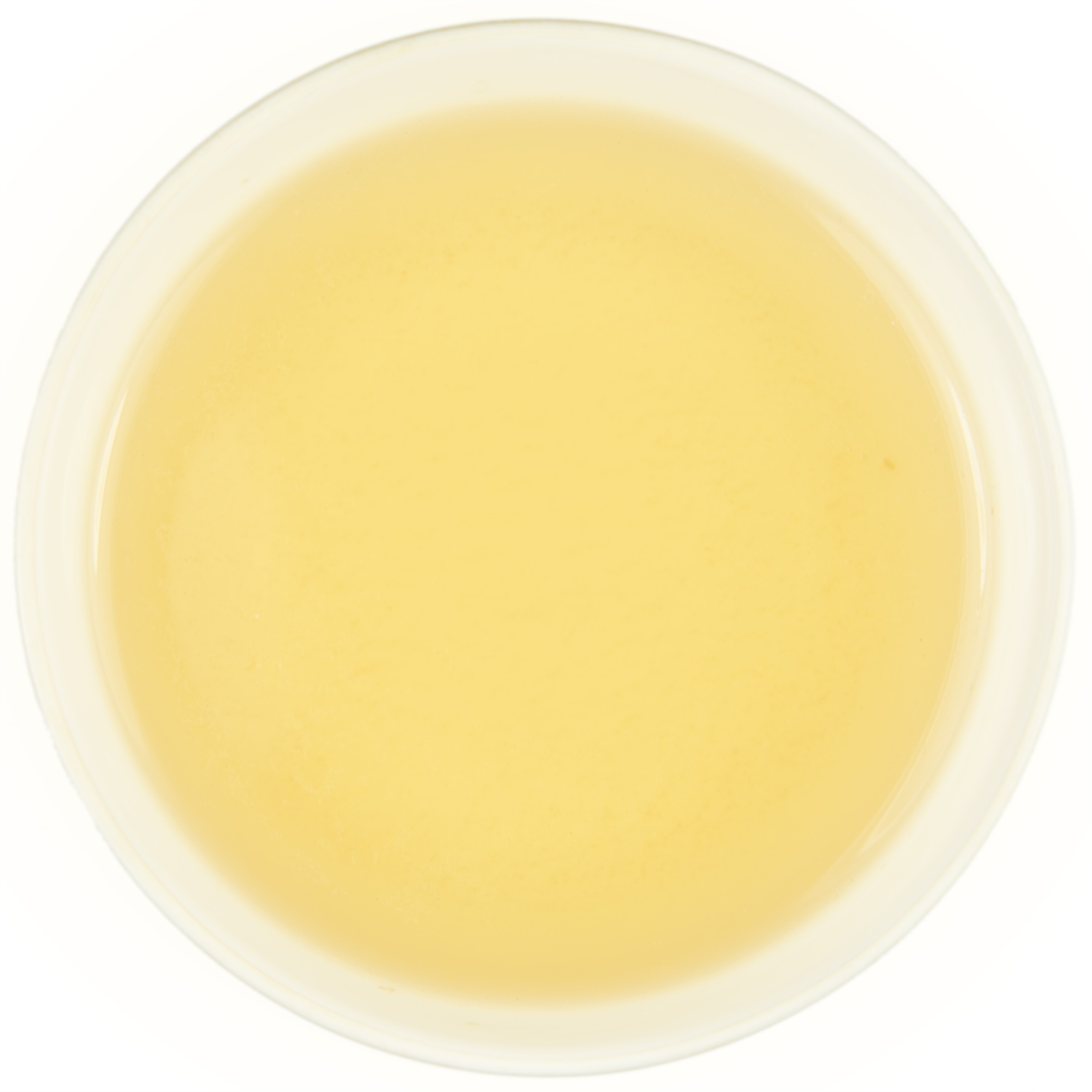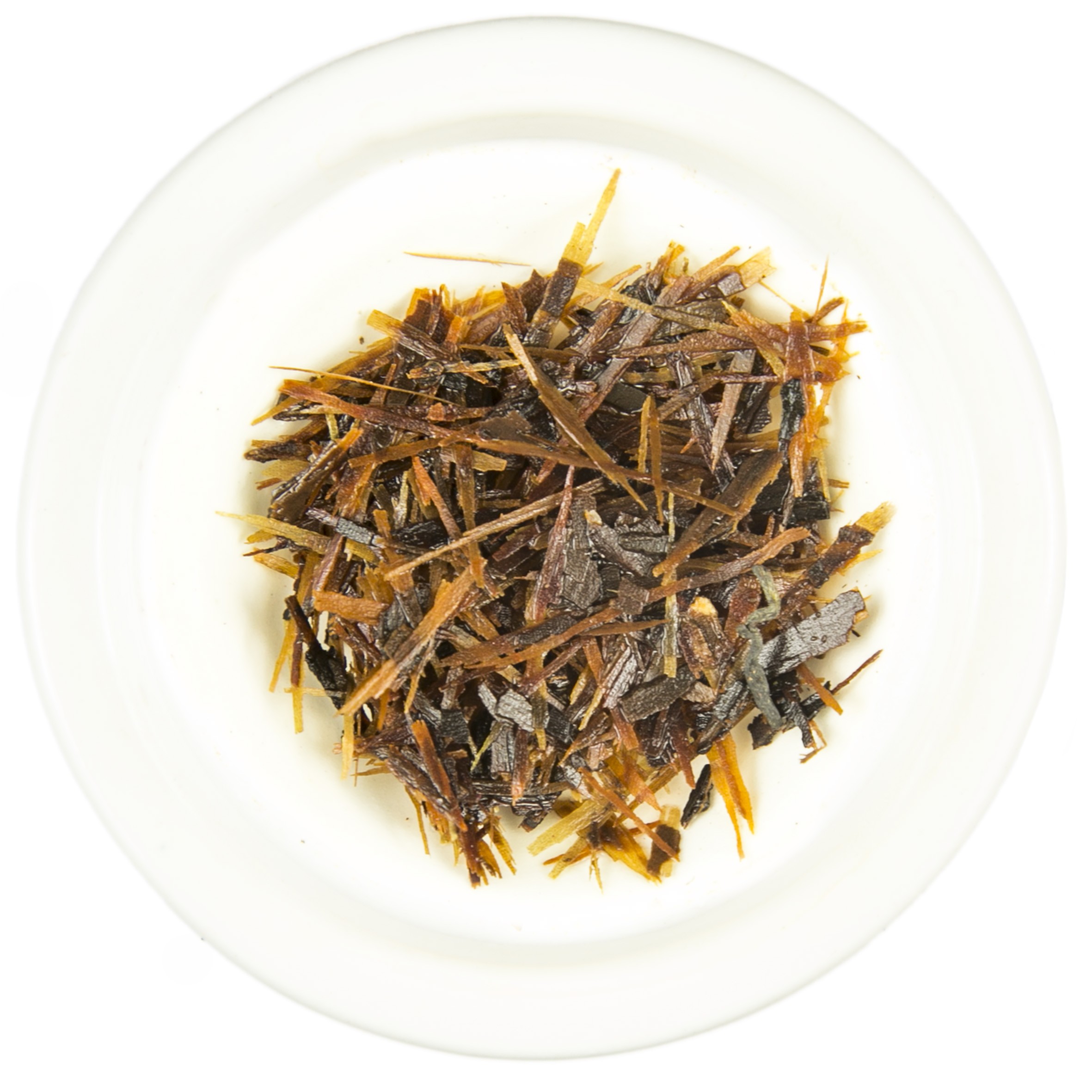Herbal Tea Brewing Guide

1 Teaspoon
Add 1 teaspoon per person and one for the pot.

95⁰c - 100⁰c
Boil using fresh water, at a temperature of 95⁰ - 100⁰c.

8 - 10 Mins
Steep for 8-10 minutes, depending on personal preference.
About Product
-
Product Description
Lapacho Tea is a South American Herbal Tea. It has become increasingly popular in recent years following new discoveries around its health benefits.
What’s more, and perhaps more importantly, it tastes great. We pack it fresh to order here at our Pluckley-based factory, situated in the stunning vistas of the Kentish countryside. This is our way of guaranteeing not only quality but also consistency.
What is Lapacho Tea?
Lapacho (also known as “Taheebo”) comes from deep in the Amazon Rainforest. Unlike other infusions – most of which are made from leaves or flowers – it is the product of tree bark.
Specifically, the inner bark of the pau d’arco tree (Handroanthus impetiginosus), which belongs to the Bignoniaceae family, is where we get this Herbal Tea. But what, exactly, does it taste like?
Lapacho Tea Taste
The indigenous communities of Argentina, Brazil and Paraguay, particularly the Tupi, Guarani, Kallawaya, Quechua and Aymara people, have long consumed Lapacho Tea.
When brewed, it tends to have woody and nutty notes with subtle hints of vanilla. The primary reason why most choose it, however, is the fact it comes with Lapacho Tea Benefits.
Is Lapacho Tea Caffeine Free?
South America is the home of a rare example of caffeinated Herbal Tea – Yerba Mate Tea. Lapacho Tea, on the other hand, is 100% caffeine-free, making it an excellent choice for those looking to cut down their intake.
If you’re hoping for an extra energy boost, in other words, you will do well to pick so-called “real” Tea or, indeed, Yerba Mate. Otherwise, you’ve decided exceptionally well here.
How to Make Lapacho Tea
1, Put 10 grams per litre of Lapacho Tea into a saucepan of water.
Bring it to boil.
2, Allow the Tea to simmer for five minutes.
3, Remove it from the heat.
4, Consider letting it infuse further before serving.
How to Serve: Best served without additions.
Lapacho Herbal Tea Benefits
According to new research, the antimicrobial properties in Lapacho Tea might afford protection against the common cold and influenza (flu). It’s also believed that its antifungal properties inhibit the processes that bacteria and fungi need to produce oxygen and energy.
Additionally, some preliminary studies show that Lapacho can protect against the growth of infectious bacteria in the digestive system.
That’s not all on offer here. One animal-based research project recognised that it inhibits pancreatic lipase. This is an enzyme that helps your body to digest and absorb dietary fat.
By blocking this enzyme, Lapacho Tea Benefits essentially has the opposite effect: it reduces fat digestion, resulting in fewer absorbable calories. In other words, it promotes weight loss.
-
Delivery Information
We offer reliable delivery services through Royal Mail to ensure that your orders reach you on time.
Here are the main points you should be aware of:
- Standard UK Delivery: £3.95 excluding delivery charge.
- Delivery Times: Orders are processed and dispatched within 2-5 working days but they may take longer during busy times. It is worth noting that all our orders are packed by hand in order to maintain the quality.
- Free Delivery: We are delighted to provide free shipping for UK orders over £35*. Moreover, customers from Europe can enjoy free shipping for any purchase above €75*. Furthermore, we offer free delivery in the USA for all purchases exceeding $125*. Please note terms and conditions may apply.
- Tracking: When your package is sent you will receive a tracking number via email so as to keep tabs of its progress.
International Shipping
We do ship worldwide meaning our products can be accessed by anyone around the world.
Here are some important details:
- Delivery Times: International deliveries vary based on destination, generally taking between 7-14 working days.
- Shipping Costs: International shipping costs are calculated at checkout based on your location and weight of your order. View full delivery charges for your location.
- Customs and Import Duties: Remember customs or import duties may exist depending on regulations in your country; these charges are borne by the customer.
Returns Policy
Your satisfaction is our top priority, however if for any reasons you’re not completely happy with your purchase, simply follow our returns procedure:
- Eligibility: Items returned within 30 days of receipt must remain unopened and in their original condition.
- Process: In order to return an item contact our customer service department using your unique order number after which detailed instructions will be given concerning returning them back to us securely.
- Refunds: Our aim is to refund you within 5-7 working days upon successful reception of returned goods. The refund amount will be credited to your original payment method.
For any other Enquiries or help please contact our Customer Support Team always at your service.
-
Product Reviews

 Loose Leaf Tea
Loose Leaf Tea Pyramids
Pyramids Tea Bags
Tea Bags Africa
Africa Assam
Assam Ceylon
Ceylon Chinese
Chinese Darjeeling
Darjeeling European
European Indian
Indian Japan
Japan Nepal
Nepal South East Asia
South East Asia Ayurveda Tea
Ayurveda Tea Black Tea
Black Tea Chai Tea
Chai Tea Flowering Tea
Flowering Tea Fruit Tisanes
Fruit Tisanes Green Tea
Green Tea Herbal Tea
Herbal Tea Matcha Tea
Matcha Tea Oolong Tea
Oolong Tea Organic Tea
Organic Tea Pu erh Tea
Pu erh Tea Rooibos Tea
Rooibos Tea White Tea
White Tea Asian Coffee
Asian Coffee Caribbean Coffee
Caribbean Coffee Central American Coffee
Central American Coffee South American Coffee
South American Coffee Coffee Blends
Coffee Blends Decaffeinated Coffee
Decaffeinated Coffee Espresso Coffee
Espresso Coffee Ethically Sourced Coffee
Ethically Sourced Coffee Flavoured Coffee
Flavoured Coffee Organic Coffee
Organic Coffee Single Origin Coffee
Single Origin Coffee Chocolate 1
Chocolate 1 Chocolate 2
Chocolate 2 Chocolate 3
Chocolate 3 Chocolate 4
Chocolate 4 Chocolate 5
Chocolate 5 Chocolate 6
Chocolate 6 Chocolate 7
Chocolate 7 Chocolate 8
Chocolate 8 Chocolate 9
Chocolate 9 Loose Tea Filters
Loose Tea Filters Tea Accessories
Tea Accessories Tea Bricks
Tea Bricks Tea Caddies
Tea Caddies Tea Caddy Spoons
Tea Caddy Spoons Tea Gift Ideas
Tea Gift Ideas Tea Infusers
Tea Infusers Tea Strainers
Tea Strainers




